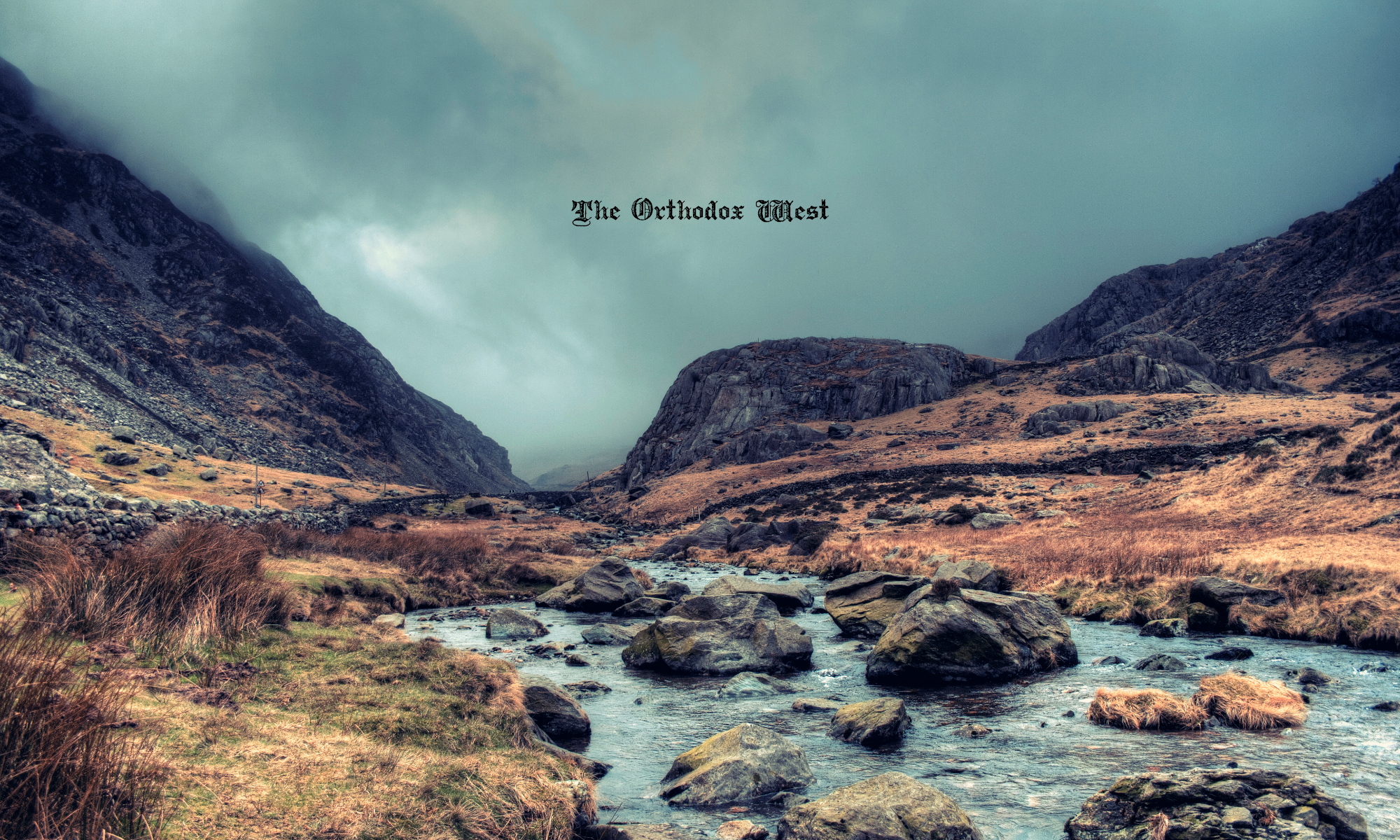We are now into our Lenten pilgrimage as brothers and sisters in the communion of our Lord and God and Savior Jesus Christ. As such, I thought it a good time to answer a question that has come to me about this blog.
First, the title. Pererinion, as noted, means Pilgrimage in Welsh. Why Welsh? Two reasons. First, Wales is one of the ancestral homes of our Western Orthodox heritage. Not as influential perhaps as Ireland or Scotland or Northumbria, or Kent, but Wales produced numerous Saints. Foremost among them Ss. David (Dewi Sant) and Ffinan, as well as the many (innumerable?) saintly descendants of King Brychan Brycheiniog.
Second, after reading that the best way to stave off Alzheimers is to learn a foreign language, I decided on Welsh. My progress is very slow, but I love its sound and its rich poetic tradition. One of my favorite Anglican acquaintances was Fr. Donald Allchin (of blessed memory), who, far more ably than I, taught himself Welsh in order to read its poets in the original tongue, as well as to facilitate his frequent pilgrimages to Bardsey Island. I hope one day to make my own pilgrimage there, if the Lord wills.
Pilgrimage is a stripping down of all worldly support in order to venture more deeply into the kingdom of God, both within and without. The true pilgrim, like the popular one from the old Russian classic The Way of a Pilgrim takes virtually nothing on his journey. He is divested of all material security in order to set out in absolute dependence upon God and His servants. It is a humbling and, honestly, fearful experience, until one truly submits to the insecurity of divine dependence, and learns to be not anxious and to take no thought, saying What shall we eat? or, What shall we drink? or, Wherewithal shall we be clothed?
The Sermon on the Mount is indeed the primary text for Pilgrimage, whether a real, barefoot one with a Bible and a husk of bread in ones pack, or simply a deeper entry into the disciplines of Lent. Fasting assists our prayer, and fasting and prayer assist our almsgiving. We do well to remember, during our Lenten pilgrimage, the words of the Golden-Mouthed: we lay up treasure in heaven by investing in the poor. If we have a whole Bible available in our pack, Isaiah 58 is a good companion to Matthew 5-7. It makes for rich Lenten reading, along with our lections for the season-convicting and humbling. May the Lord bless us all in our Lenten pilgrimage to the Cross and the empty tomb.

